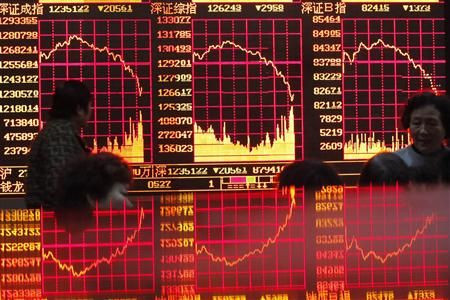China's central bank raises rates; Premier Wen confident about containing inflation

China's central bank raised one-year lending and deposit interest rates for the second time in 2010 on Saturday, leading Chinese stocks to rise sharply on Monday before falling.
The People's Bank of China (PBOC) raised benchmark interest rates by 25 basis points, leading the one-year interest rate to touch 5.81 percent and the one-year deposit rate to 2.75 percent.
China has been on a drive to contain inflation for the past year, as consumer prices are spurred higher by increasing food and fuel costs.
Inflation touched a 28-year high at 5.1 percent in November, as food prices rose 11.7 percent during the month.
The government has taken several steps to suppress the rise in food prices, including a rise in vegetable-planting efforts and a reduction in power.
China is becoming one of the largest importers of food grains, even as about 20 percent of their total rice production was destroyed in floods earlier this year.
The PBOC now believes that interest rate hikes are the best way to manage inflation, as the bank continues to tighten monetary policy.
The rate increase came at the right time, as Western countries are celebrating their holiday, to avoid overreaction from the global markets, Li Daokui, a member of the monetary policy committee with the PBOC, was quoted as saying by Xinhua, the official news agency of the government.
The bank has also raised the reserve ratio for banks thrice this year, even as economists expect further rate hikes. The hikes are generally used by the central bank as a signal to banks to slow lending and indicate its seriousness about policy tightening.
However, the past few hikes have not had as much as an impact on lending.
The Chinese government is confident of keeping inflation in check, China's Premier Wen Jiabao said on Sunday.
He also promised to increase housing price controls. The Chinese government has introduced several steps to ensure that housing prices do not get unaffordable, particularly in big cities like Beijing.
The government is now planning to increase the supply of affordable houses for low-income groups, Wen said, adding that the government will also try to curb speculation in the real estate market, mainly through control on credit and land use.
Inflation expectations are more dire than inflation itself, Wen said, urging people to remain confident and government agencies to help stabilize prices.
© Copyright IBTimes 2024. All rights reserved.





















